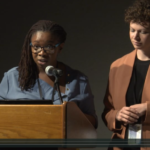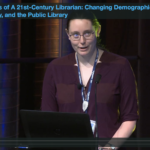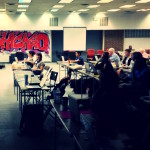
ANNELIEN SMETS
imec-SMIT, Vrije Universiteit Brussel
BRAM LIEVENS
imec-SMIT, Vrije Universiteit Brussel
[s2If is_user_logged_in()]
Download PDF
[/s2If]
[s2If current_user_can(access_s2member_level1)]
[/s2If]
This paper aims to contribute to the debate on the integration of ethnography and data science by providing a concrete research tool to deploy this integration. We start from our own experiences with user research in a data-rich environment, the smart city, and work towards a research tool that leverages ethnographic praxis with data science opportunities. We discuss the different key components of the system, how they work together and how they allow for human sensemaking.
[s2If current_user_is(subscriber)]
Become a member to access video. Learn More.
[/s2If]
[s2If !is_user_logged_in()]
FREE ARTICLE!
Please sign in or create a free account to access the leading collection of peer-reviewed work on ethnographic practice. To access video, Become an EPIC Member.
[/s2If]
[s2If is_user_logged_in()]
THE...











